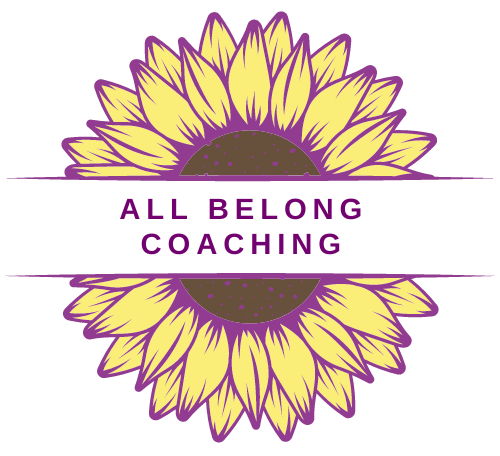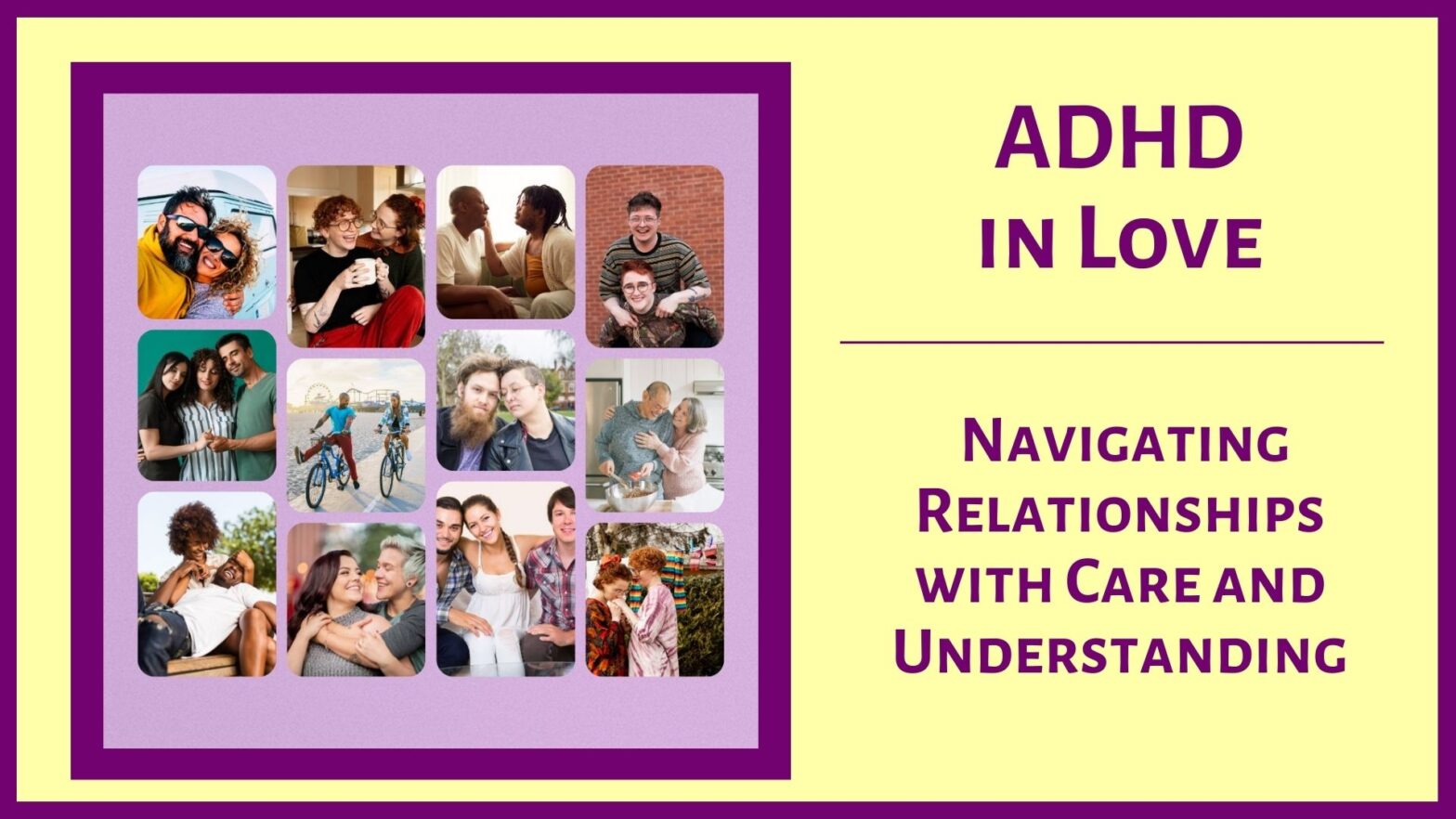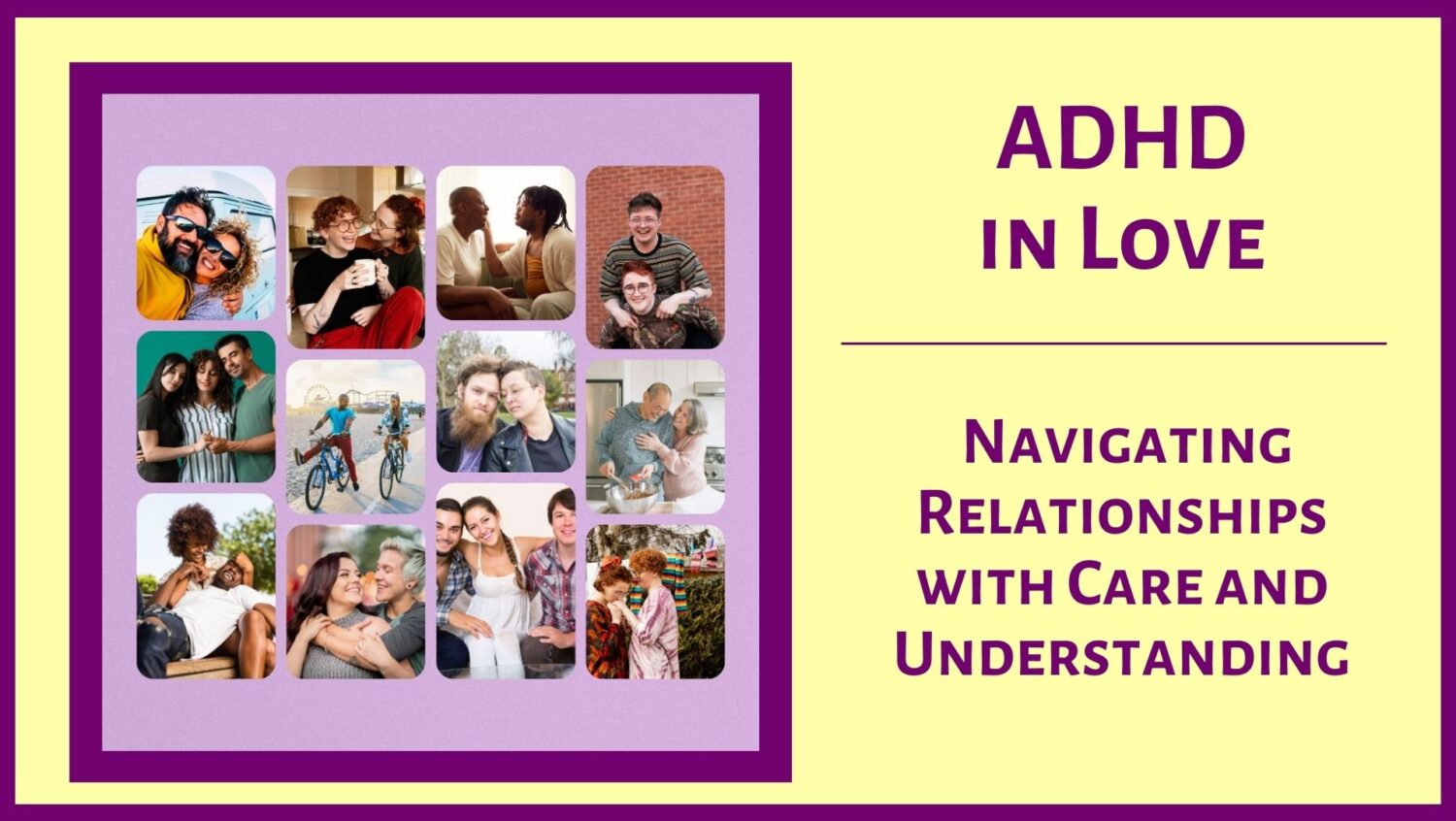ADHD In Love
Navigating Relationships With Care and Understanding
One when or more partners in a relationship has ADHD, they bring unique challenges and strengths with them.
Let’s chat about Navigating ADHD Relationships with Care and Understanding.

Knowledge Is Power
The first step to navigation is knowledge. It’s important for every partner in a relationship to seek to understand ADHD and it’s impact on the brain.
Without the learning and the understanding that comes with it, ADHD partners often are sometimes seen as not caring, when in reality they care deeply – but struggle with executive functioning.
It’s important to understand that ADHD is a neurodevelopmental different, it is not a character flaw. Some of the common Traits of ADHD that may impact relationships are
- Impulsivity
- DifficultyFocusing on the right thing at the right time.
- Time blindness
- Rejection Sensitivy Dysphroia
- and more.
Communication Is Key
In any relationship, communication is key. In relationships with ADHD people, practicing open and honest communication is even more important. Here are some tips that may help.
- Practice expressing emotions and needs to your partner(s) without blame.
- Listen actively when ADHD symptoms create misunderstandings and miscommunications.
- Collaborate to find ways to meet everyone’s needs.
- Use ADHD friendly tools to help with communication – email, white boards, shared calendars, etc.


Managing Conflict With Compassion
It’s important to understand that emotional regulation is an executive function that is often a struggle for people with ADHD. When we are emotionally dysregulated, small disagreements can escalate quickly – sometimes it seems to our partner(s) “out of no where.”
In addition, ADHDers often have Rejection Sensitivity Dysphoria. This means that we are more sensitive to real or perceived rejections. Criticism or someone “appearing” mad at us can set us into fight or flight.
Some things that may help are
- Learning to recognize triggers and other signs of tension building.
- Practice taking a time out during heated moments.
- Learn to challenge your own thoughts.
- Focus on problem solving, not blaming or shaming.
- Come up with an ADHD friendly family plan for addressing conflict resolutions.
Other Tips For Building a Thriving Relationship
- The Importance of Collaboration:
- Working together to set realistic goals.
- Collaborate to divide tasks in ways that honor all partners’ strengths.
- Lean Into Strengths
- ADHDers are known for being creative, spontaneous, and passionate. Lean into each partners’ strengths.
- Create Relationship Tools for Success
- Regular times for family check-ins
- Date Night Rituals
- Celebrations of Small Wins
- Family Re-Set Times
- Shared routines
- Assume Good Will
- Practice assuming good will and not malicious intent or “not caring enough”.
- Assume your partners are caring, honest, good people who care for you before looking for why or how they may hurt you.
- Encouraging Growth and Self-Care:
- Support your own and your partners’ self-care routines that help manage ADHD symptoms.


Navigating ADHD In Love Is Beautiful
While there are definitely challenges, ADHD in love is also beautiful, liberating, and fun. It’s definitely important to address the challenges and struggles, don’t forget the importance of focusing on the beauty. Our brains listen to the messages we tell ourselves. Feed your brain positive affirmations.
Lastly, you don’t have to do it alone. If you need extra support in your relationship – together or individually, seek it out. Find community support, friends and familial support, therapists, and of course – an ADHD Coach like me.
As an ADHD Coach who also has ADHD (and is a queer, polyamorous woman), I understand the struggles and the beauty. Book a time to talk for free today!

 Don’t Delay Joy
Don’t Delay Joy
Kat Sweeney, MCLC


